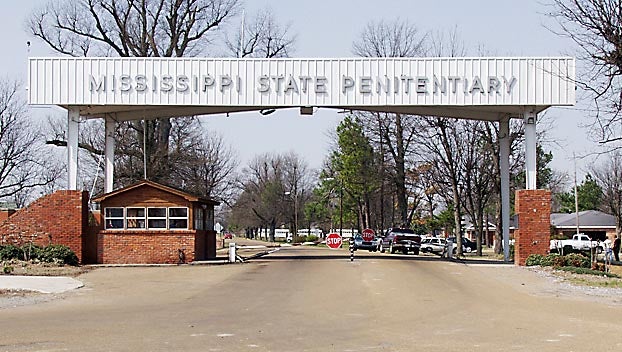Light shed on chaotic conditions inside Mississippi prisons sparks calls for reform
Published 2:13 pm Friday, September 6, 2019
By Jerry Mitchell
Mississippi Center for Investigative Reporting
Top Mississippi officials called for a review of the state’s increasingly troubled prison system, following stories by the Mississippi Center for Investigative Reporting and ProPublica that documented chaotic conditions in the state prisons.
“As governor, one of the first actions I’ll take is a full audit of the system to figure out why we keep seeing problems like this, and identify solutions to prevent them from happening in the future,” Mississippi Attorney General and Democratic gubernatorial candidate Jim Hood said in a statement.
The Mississippi Center for Investigative Reporting and ProPublica documented how prisoners have been beaten and burned by fellow inmates, especially at the South Mississippi Correctional Institution. At that prison, Inmates outnumber guards 23 to 1, a ratio far higher than that of other state and federal prison systems.
After the most recent story on Aug. 19, inmates at the prison in Leakesville were searched and moved, and one gang operating inside the state’s prisons said they are disarming.
Hood’s Republican opponent, current Lt. Gov. Tate Reeves, acknowledged there is “still much more work to be done to strengthen Mississippi prisons,” according to spokeswoman Laura Hipp.
She said Reeves, locked in a tight race with Hood, was committed to a measure signed into law in 2014 by Gov. Phil Bryant. The initiative promised to reduce the prison population, save millions and reinvest some of the money into programs for offenders.
“We have passed prison reform that encourages non-violent offenders to be productive citizens who can work to support their families,” Hipp said. “Tate is dedicated to that effort.”
But an April story by the Mississippi Center for Investigative Reporting and ProPublica showed how implementation of the 2014 law has been marked by broken promises and funding shortfalls, according to interviews, data and documents.
Instead of investing money into programs for offenders, the story found, the savings have gone back into the state’s coffers, helping to pay for huge corporate tax cuts at a time the state was struggling to meet revenue estimates.
Mississippi Department of Corrections’ spending has declined by $185 million since 2014. The department’s $347 million budget for this fiscal year is $30 million less than it was in 2014.
A spokeswoman for Bryant said the governor remains confident that Corrections Commissioner Pelicia Hall, the state’s top prison official, was taking the steps needed to improve the system.
“He trusts the commissioner to navigate challenges and to properly manage the state’s correctional facilities,” Rivers Ormon said.
In an unusual display of bipartisanship, Hood’s concern over the state’s struggling reform effort was echoed by other top Mississippi officials.
State Rep. Jay Hughes, a Democrat who toured SMCI in April and is running for lieutenant governor, called on state lawmakers to hold hearings focusing on Mississippi prisons to address the kinds of problems he witnessed in the facility. “The legislative committee process has a heightened degree of attention,” he said.
Secretary of State Delbert Hosemann, Hughes’ Republican opponent in the race for lieutenant governor, recently toured the Mississippi State Penitentiary at Parchman and left concerned. “Our corrections officers are underpaid and working significant overtime,” he said, “and conditions inside our facilities are deteriorating.”
More reform is needed, he said. “We want productive, tax-paying citizens and not recidivism.”
In the days following the story about SMCI, corrections officers began moving inmates to different units within the prison, according to families and inmates. They also searched inmates and cell blocks for contraband. Such techniques are often used by corrections officials to break down gangs’ ability to operate.
Self-described leaders of the Gangster Disciples, one of several groups operating inside the prisons, told the Mississippi Center for Investigative Reporting and ProPublica that their members are turning in their weapons to show they are against violence and that they want to transition to “the war against illiteracy.”
Shawn Davis, who identified himself as an “outstanding representative” for the Gangster Disciples, wrote that the group had turned in at least 255 weapons at Mississippi prisons since Aug. 26.
Davis, a 32-year-old inmate serving a life sentence for murder at Parchman, wrote that he surrendered five weapons. On the same day that the Mississippi Center for Investigative Reporting asked corrections officials to confirm Davis’ account, the prison put Davis in lockdown for belonging to a gang, according to inmates.
A top Gangster Disciples leader, who asked not to be named over concerns about retribution from prison officials, said prison classes sometimes have waiting lists. He said the group has begun teaching their own courses, including real estate, journalism, corporate thinking, time management, business development and how to be an entrepreneur.
“One time we were part of the problem,” he said. “Now we want to be part of the solution.”
The prisoner movements, weapons surrender and educational offerings could not be officially confirmed. MDOC officials did not return requests for comment.
Outside experts expressed skepticism. Jimmy Anthony, a vice president of the Mississippi Association of Gang Investigators, said the Gangster Disciples have made such promises before.
“They would be in a low-income community, cleaning up garbage,” he said.
But by night, “the same people would be selling crack cocaine.”
Jerry Mitchell is an investigative reporter for the Mississippi Center for Investigative Reporting, a nonprofit news organization that seeks to hold public officials accountable and empower citizens in their communities. Email him at Jerry.Mitchell.MCIR@gmail.com and follow him on Facebook at @JerryMitchellReporter and on Twitter at @jmitchellnews.
The Mississippi Center for Investigative Reporting and ProPublica are spending the year examining the state’s corrections system. We want to know what’s really happening behind the walls of Mississippi’s prisons.
This article was produced in partnership with the Mississippi Center for Investigative Reporting, which is a member of the ProPublica Local Reporting Network.
This story is part of an ongoing investigation into Mississippi’s corrections system.
More News






